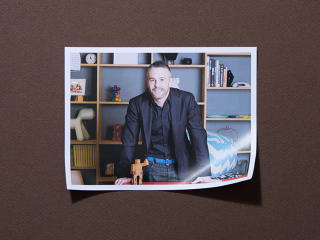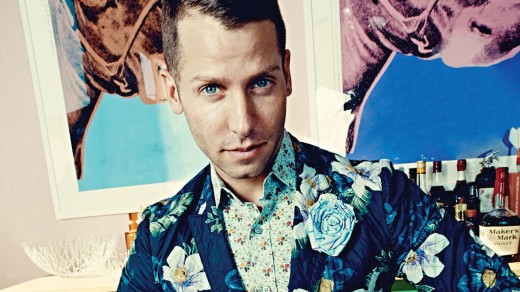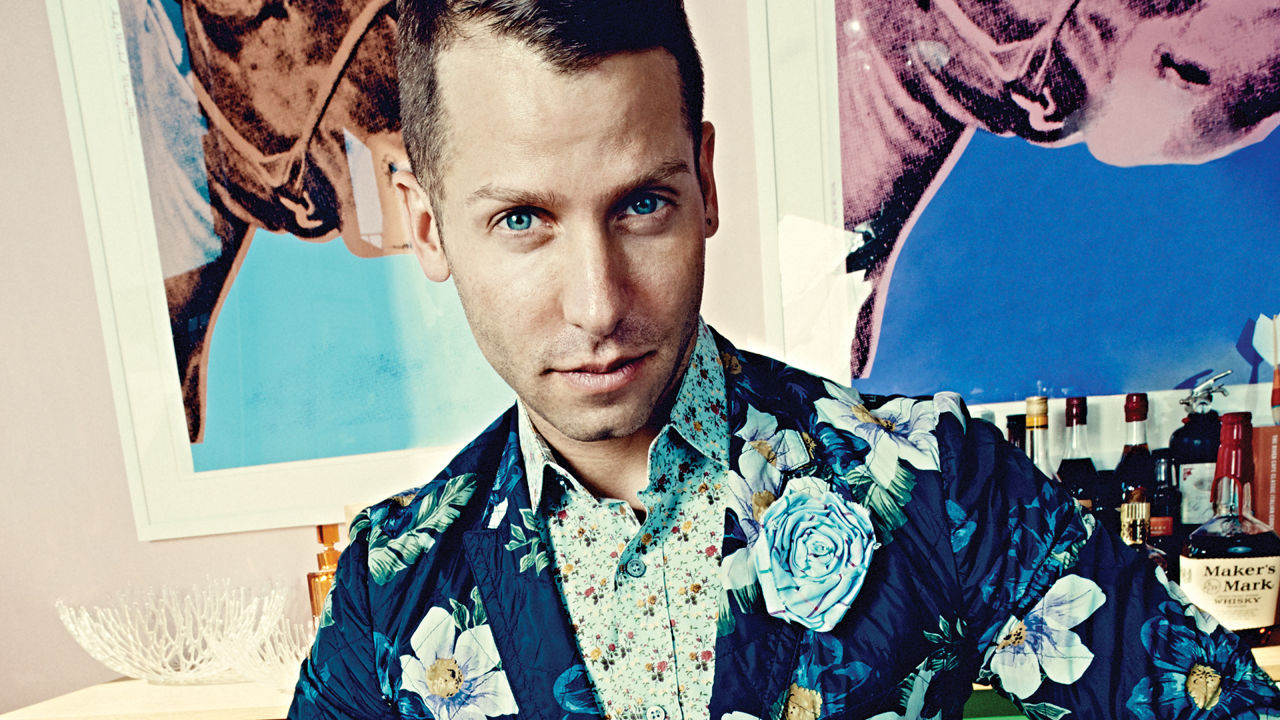Bradford Shellhammer’s New Company, Bezar, Launches Today
The former Fab executive never wanted to start another company—which makes his new startup something of a surprise.
Bradford Shellhammer was soul searching on a beach in Rio. It was February 2014, and all he knew was what he didn’t want to do with his life. “I didn’t have dreams of starting another e-commerce company,” he says. He was too bruised.
A few months prior, Shellhammer had stepped down as chief design officer of Fab, the design-obsessed flash-sale site he had founded in 2011 along with  Jason Goldberg, the company’s CEO. Fab was a hit early in its run, scooping up $336 million in venture capital, but it quickly started to experience growing pains. To keep up with the expectations that come with bundles of funding, Fab ballooned from a 14-person design shop into a 700-person corporation that looked more like a traditional retailer than a nimble startup. “Fab would be a very powerful business if it didn’t have ambitions to be three times as large as it is,” an analyst told Fast Company in 2013. Instead, it struggled to find its way. Revenue fell short, missing its target by 25% in 2012, and the company is rumored to have lost $90 million in 2013.
Jason Goldberg, the company’s CEO. Fab was a hit early in its run, scooping up $336 million in venture capital, but it quickly started to experience growing pains. To keep up with the expectations that come with bundles of funding, Fab ballooned from a 14-person design shop into a 700-person corporation that looked more like a traditional retailer than a nimble startup. “Fab would be a very powerful business if it didn’t have ambitions to be three times as large as it is,” an analyst told Fast Company in 2013. Instead, it struggled to find its way. Revenue fell short, missing its target by 25% in 2012, and the company is rumored to have lost $90 million in 2013.
After he returned from the beach, Shellhammer started a design consultancy, which led to a half-time job with his first client—Backcountry, an online camping-gear retailer—as its chief design officer. It was an odd fit. “I went in there without any connection to the outdoor world other than I like backpacks,” he says. Backcountry didn’t turn Shellhammer into an outdoorsman, but it did show him how a profitable e-commerce business operates. It also gave him a chance to mend his ego and learn skills beyond curation.
But Backcountry didn’t satisfy his soul. A few months in, Shellhammer started “getting itchy,” and soon had an epiphany. “You’re not a one-trick pony, Bradford!” the epiphany said. “I am much more talented than a guy who can pick color,” Shellhammer concluded. “I have a vision of this thing that needs to exist in the world.” And “this thing,” it turns out, is an e-commerce company.

Bezar, which launches officially today, has echoes of Fab, although Shellhammer insists it’s different. The site will host digital “pop-up shops” where designers, handpicked by Shellhammer and a small team, will sell their products in three-day bursts. On a given day there will be one shop per category: home goods, art, accessories, and jewelry, all in the $60 to $100 range to make for easy impulse buying.
What else makes Bezar different? For one, the stuff. Unlike One Kings Lane and Zulily, Bezar won’t sell excess inventory. The site will operate more like a traditional retailer in that sense, giving wholesale goods a standard markup and offering exclusives on particular items. Shellhammer hesitates to use the words flash sale when describing the site, but he does hope that the urgency of the three-day time frame will drive users to buy.
Wearing an emerald button-down and a matching scarf that has been shredded to look like cooked spaghetti, Shellhammer says that his taste has matured. You won’t find “kitsch” items on Bezar, such as the hamburger sweatshirts and beard beanies that Fab became known for. In addition to small designers, Shellhammer intends to recruit big-name brands to launch and sell limited-edition collections and collaborations on the site. In his wildest dreams, Shellhammer would hope to see Bezar evolve into a digital marketplace like Etsy, but with a stylish and eccentric gatekeeper. Its name, an alternative spelling of both bizarre and bazaar, is a nod to that goal.
“I don’t want to just be the guy who is doing Fab again,” Shellhammer says. He wants Bezar to be the Fab that never was. “At its core, we were there for these [designers], and at the same time giving consumers an alternative to all the stale choices. Fab lost sight of that.”

Still, he says,”there was a great love for Fab, and that did help me.” About half of the thousand designers already signed up to sell products on Bezar previously sold on Fab. And more than 10,000 potential customers signed up for access to the site in early January, even though at the time it was nothing more than a “Coming Soon” landing page.
The startup also had no trouble raising money. A group of 20 investors and advisers, including design guru Yves Béhar and five of Fab’s original backers, have put in a total of $2.25 million. Shellhammer kept the round small on purpose. “This is a lesson I learned: Don’t take more than you need,” he says. Shellhammer, who personally interviewed the first 300 of Fab’s employees, doesn’t see Bezar getting to 20 people in the first year. And he’s more than happy with that.
Early in March, Fab sold off its remaining assets to custom manufacturing conglomerate PCH International, although before it went, Goldberg spun off a manufacturer and online retailer of original furniture, called Hem. “Jason has a different view of how to make a business,” Shellhammer says. “I think what he is doing is really interesting. I think it’s beautiful. It’s not what I would do.” For his part, Goldberg says that he’s supportive of Bezar, too. “Bradford is an amazing curator and tastemaker,” Goldberg said in an emailed statement. “His passion is infectious. I’m confident he will be fabulously successful with Bezar.”
Shellhammer insists Bezar and Hem aren’t competitors, anyway. “[Jason] is hard-core focused on this furniture business,” he says, then pauses. “Maybe we can sell it?”
Fast Company , Read Full Story
(176)














